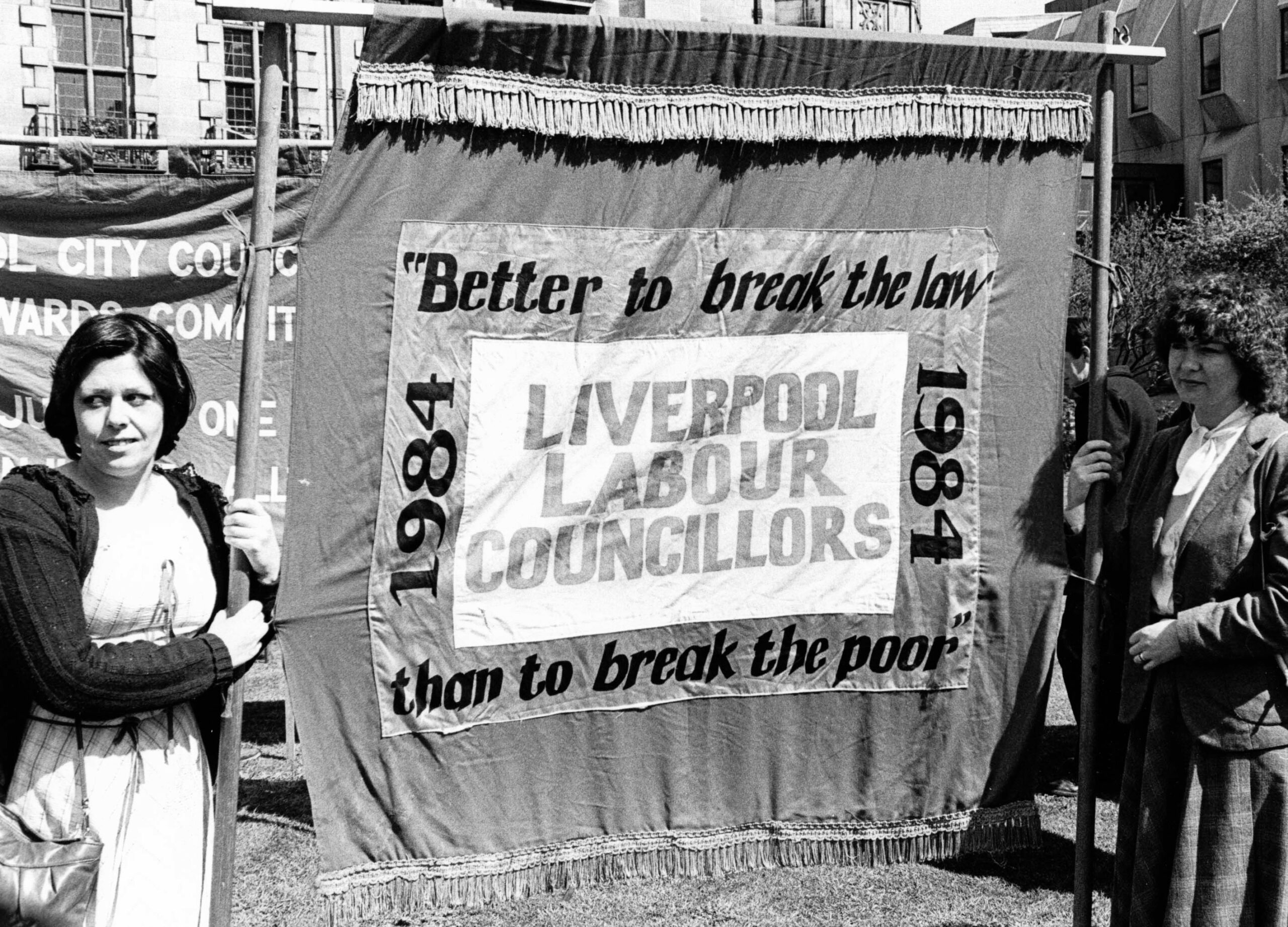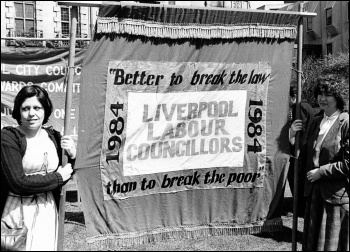Liverpool Labour meltdown
Fight for socialist policies
Thirty five years ago the national news bulletins most nights featured the leaders of Liverpool’s Labour council, in which Militant (now the Socialist Party) played a key role. The council was leading a mass movement against Thatcher’s Tory government, successfully winning £60 million back from the Iron Lady and carrying out significant reforms, including building 5,000 council houses.
Now Liverpool’s Labour council is back in the national news for entirely different reasons. Liverpool Labour Party is in meltdown following the arrest of Labour mayor Joe Anderson on suspicion of conspiracy to commit bribery and witness intimidation. Anderson has denied any wrongdoing but has stood aside from his mayoral duties and withdrawn from the upcoming election.
Just as ballot papers to vote on the resulting mayoral candidate shortlist were due to be posted out to Liverpool Labour Party members, the process was suspended. It has now been announced by Labour Party HQ that none of the three previously shortlisted candidates are to be put forward. Rumours of the imposition of a right-wing candidate chosen by Labour nationally are rife. Anger at this is spreading beyond Labour Party activists, and into sections of the wider working class in the city. It made Liverpool look unimportant, not to be trusted to make its own decisions – a doormat for pro-capitalist, London-based Keir Starmer to wipe his feet on.
Labour councillors are now planning to discuss a resolution to attempt to immediately abolish the elected mayor! This has nothing to do with a belated opposition to the executive mayoral system, but rather is motivated by the disarray in selecting a candidate, the allegations of corruption surrounding the post and the fear that Labour might lose the election.
Austerity implemented
This mess is not accidental but is a result of decades of Blairite pro-capitalist policies from Labour nationally and in Liverpool. Like Labour councils and mayors up and down the country, Liverpool’s Labour authority implemented massive cuts over the last decade, estimated at a loss of 63% of the council’s budget, including 3,600 jobs lost since 2010, a projected shortfall for the coming 2021-22 financial year of a further £15.4 million.
In addition the executive mayoral system – imposed in Liverpool without even having a referendum – was a product of Tony Blair’s first New Labour government. Executive mayors are favoured by both the Tories and the Labour right because they reduce local democracy and accountability. They are a move towards an American model. In the US many cities are run by ‘big personality’ mayors, supervised only by elected ‘boards’ that meet once a year to hand out contracts for public services to private providers. It’s far easier, in such a system, for one person to take unpopular decisions to cut or privatise services – or to favour big business interests – than to win support for such policies amongst a wider group of councillors.
Such a system can also lead more easily to corruption. Regardless of the truth about the charges against Anderson, it is clear that he was not held to account. The contrast is vast between how Liverpool city council functioned under his rule, and the exceptionally high levels of democracy that existed in the 1980s when the council had a fighting socialist leadership. Liverpool District Labour Party meetings – which debated each stage of the council’s struggle against Thatcher – were attended by over 700 delegates.
Unfortunately, under Jeremy Corbyn’s leadership measures were not taken to transform Labour into a mass democratic workers’ party comparable to what existed in Liverpool in the 1980s. Nor was a campaign waged to demand that Labour councils took the ‘Liverpool road’ and refuse to implement cuts. Now, under Starmer’s rule, Labour candidates clearly have to be in his pro-capitalist image.
No reason has been given for excluding the three previously shortlisted candidates but it seems that the main target was Anna Rothery who calls for Corbyn’s reinstatement as a Labour MP, and is backed by Corbyn and Unite nationally. Rothery has threatened legal action against the Labour Party, and some local activists are calling for her to stand as an independent.
Way forward
Clearly there are fears among the Labour right that if she does so she might win. This would potentially be an important step forward, provided that she stood on a programme to fight in the interests of the working class of Liverpool.
The way forward has been shown by a Liverpool Unite branch, which is calling for the council to set a no-cuts budget. For Anna Rothery to get the full support of the movement would mean breaking with the approach she has taken as a councillor since 2006.
It is true that she has recently spoken in support of a local campaign to keep the last remaining four One Stop Shops open, but she did not campaign against the closing of the previous four, nor did she oppose the big majority of the many cuts carried out by the council. She would also need to be backed up by a city wide slate of anti-cuts council candidates.
Were this to take place in Liverpool it would also more sharply pose the need for anti-cuts candidates in other parts of the country. Imagine if she was joined by Corbyn standing for mayor of London, both backed by the left trade union leaders. Such a stand would be a major pole of attraction for all those wanting to see a voice for workers at the ballot box.
The Trade Unionist and Socialist Coalition (TUSC) – involving the RMT transport workers’ union, the Socialist Party, ex-Labour MP Chris Williamson and others – would welcome discussions with Rothery on such a campaign.
TUSC is organised on a democratic, federal basis. We will do all we can to make sure that workers have a voice at the ballot box this May, including in Liverpool and London.
Roger Bannister, veteran of the Liverpool struggle in the 1980s and now on the committee of the Merseyside Pensioners’ Association, is the prospective TUSC candidate for Liverpool mayor, and TUSC will also be standing in as many Liverpool council seats as possible.
Previously in Liverpool, the eighth biggest city in the UK, TUSC mayoral candidates Roger Bannister, and Tony Mulhearn (President of the Liverpool District Labour Party in the 1980s) have both beaten the Tory candidates.
Now is the time for socialists to act. TUSC should get its message out now to Liverpool’s working class electors that there is a socialist alternative to Labour austerity and misrule, including appealing to left Labour Party members to join our campaign. The policies that they support are TUSC policies, and are an anathema to the Labour leadership.
This version of this article was first posted on the Socialist Party website on 26 February 2021 and may vary slightly from the version subsequently printed in The Socialist.









